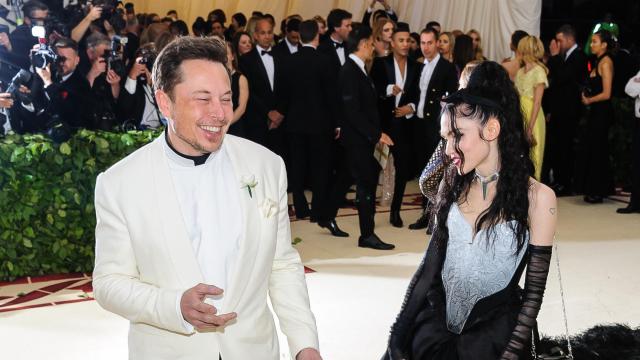A good way to get the full scope of the current debate surrounding AI is to know the people involved. Time magazine, in all its wisdom, now has its own list of the top 100 figures most important to the AI debate to help us all get to know the players. There are a hell of a lot of AI founders on there, but despite that, there’s a good representation of folks on the fringes who could become main characters in the era of AI. Oh, and there’s also Grimes.
The list is rather extensive and holds up people who are actively involved in AI and the discussions around it, as well as those on the periphery who may be the catalysts for catapulting AI into even greater popularity—or dragging it back down to Earth. Like all Time’s lists, it does have a heavy corporate bent. The “Leaders” category is festooned with major tech companies, with Anthropic heads Dario and Daniela Amodei leading the section by virtue of having a last name that begins with the letter “A.” The list tries to tout Anthropic’s “Constitution” for AI as leading the discussion for ethical development, even though its main thrust is simply placing ‘guardrails’ on AI models, something that doesn’t really work all the time for even the most sophisticated models.
Most of the who’s who list is made up of CEOs—43 in all. The usual suspects are all here. You have OpenAI founder and CEO Sam Altman plus the company’s president Greg Brockman. There’s all the ultra-rich investors such as Reid Hoffman, Marc Andreessen, plus the big tech heads like Microsoft’s chief scientist Jaime Teevan and Google DeepMind CEO Demis Hassabis. Oh, and of course, the early OpenAI investor and now AI coat-tail-riding Elon Musk is there playing catch-up with his nascent startup xAI.
But there’s also room for pop culture figures in Time’s big list. Music artist Grimes takes a leading role because she’s become the figurehead of AI song-making platforms and opened an AI model of her voice for all to use. She has even claimed she would create an album where she faces off against an “AI-hive-mind-collective Grimes.” Then there are other artists like Holly Herndon, a singer-songwriter, who has worked longer than Grimes creating music based on the hottest tech of the moment. She’s also established a template that allowed artists to opt out of using their work to train AI datasets, which some companies like Stability AI and Hugging Face have complied with.
Time also held up Rootport, the pseudonymous author of the manga titled Cyberpunk: Peach John, as an “Innovator” in AI. The figure has become controversial for his open use of the AI art generator Midjourney to generate the art for the manga. Indeed, the creator has openly said he doesn’t know how to draw and has bragged that the work took him just six weeks to finalize. While the work was published by professional publishing house Shinchosha, it’s really hard to call anything Rootport’s done true “innovation.” Other artists have tried creating graphic novels with AI, but they’ve had little luck getting wider recognition for the art itself, especially from U.S. copyright laws. On the flip side, there are people like Kelly McKernan in the “Shapers” category who made headlines earlier this year for being one of the few artists to sue Midjourney, along with Stability AI and DeviantArt, for using her art in the AI’s training data
The list also finds some rather interesting folks in the entertainment industry. There’s Hugo and Nebula award-winning author Ted Chiang, but also Black Mirror creator Charlie Brooker. Lilly Wachowski, the famed co-director of The Matrix, is here. But the list didn’t just reference her and her sister Lana’s work popularizing a dystopian future war with intelligent machines, she’s also used as a figurehead for the ongoing SAG-AFTRA and WGA Hollywood strikes, especially with her early critique of studios using AI “as a tool to generate wealth” at the expense of artists and the culture at large.
And then there’s the multitude of common AI critics making an appearance. There’s Margaret Mitchell, the chief AI ethics scientist at Hugging Face, and Distributed AI Research Institute founder Timnit Gebru. Both made their names as AI ethicists working for Google before being fired during a larger conversation about AI generating harmful content. There’s also University of Washington computational linguistics professor Emily Bender, who is a regular online commentator debunking the hype surrounding AI through her “Stochastic Parrot” thesis.
There was some room left for lesser-known figures. Eighteen-year-old Sneha Revanur, the founder of Encode Justice, got a spot for helping plead with the Biden administration to work quickly on AI regulations. Kate Crawford, an author and professor at USC Annenberg, who wrote in her book Atlas of AI about the labor, environmental, and human costs of the race for AI also nabbed a spot. If there were a big Atlas for all the characters sucked into the whirlpool of the current AI debate, Time might be a good place to start, but it might be better to analyze what those without the billions of dollars in their back pocket have to say about the transformative tech.
